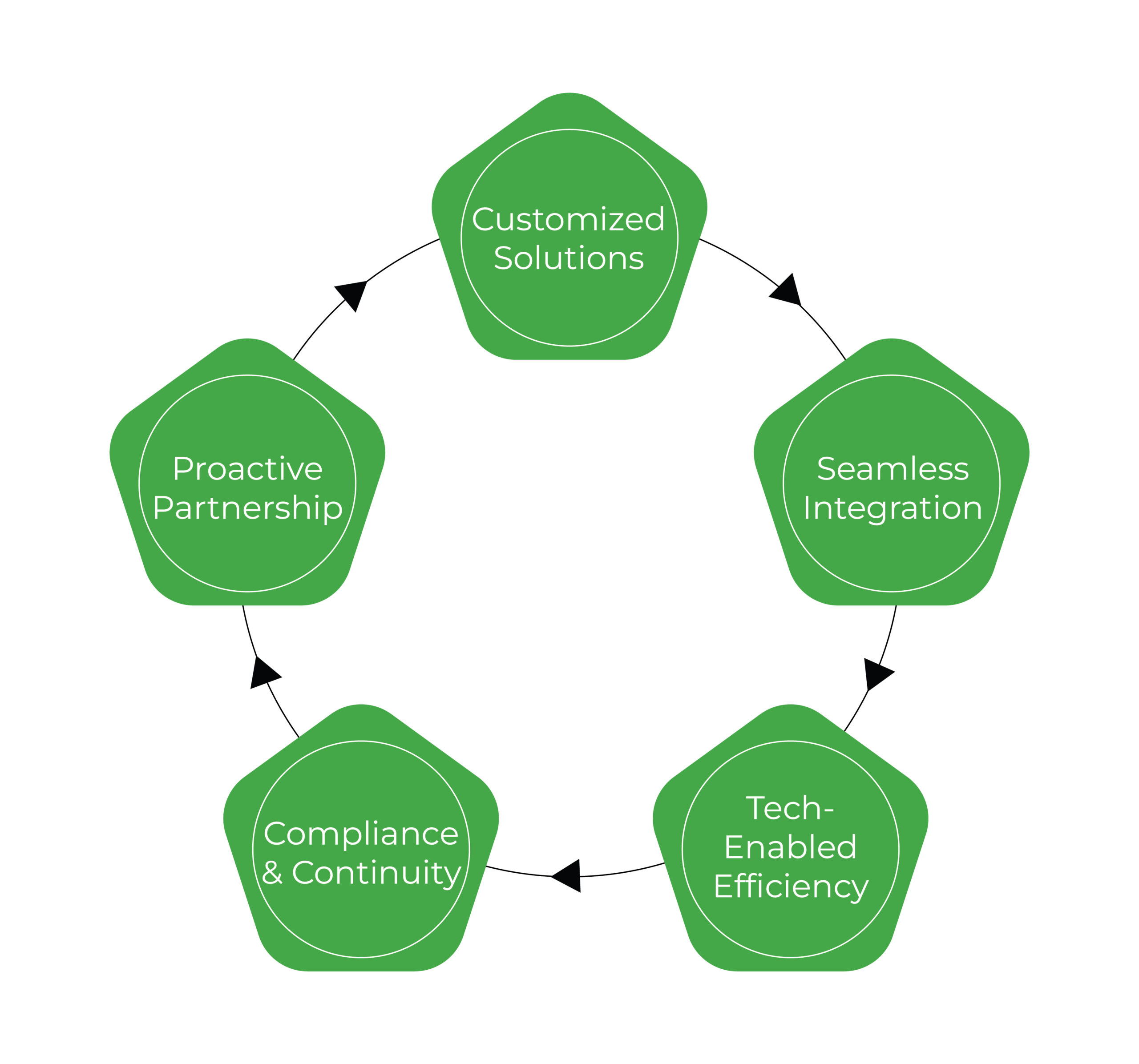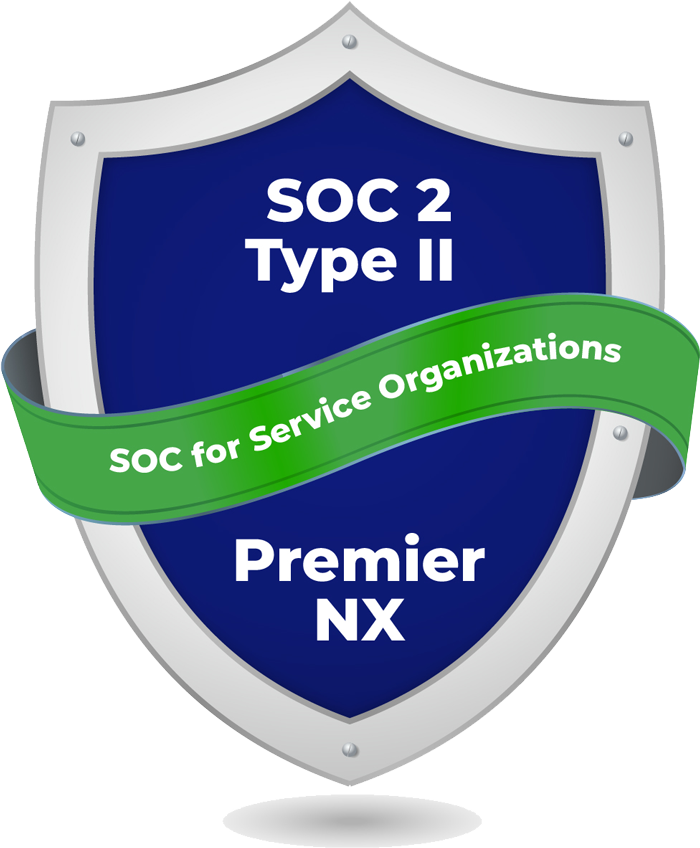Mid market companies face unprecedented challenges in an era of rapid global trade policy changes. Rising operational costs, supply chain disruptions, and heightened competition are testing the resilience of small- and medium-sized enterprises. These shifts can feel overwhelming for first-time outsourcers, but strategic outsourcing offers a lifeline.

As trade volatility continues to pressure margins and disrupt operations, businesses must rethink traditional models.
By partnering with specialized providers, businesses can achieve cost efficiency, operational agility, and access to global expertise, enabling them to thrive in a volatile market. This article explores how outsourcing helps mid-market firms navigate trade-related disruptions and outlines key benefits of choosing a reliable partner, with insights into how Premier’s approach enhances these advantages.
The Challenges of a Shifting Trade Landscape
Recent trade policy shifts, such as those introduced in early 2025, have reshaped the economic environment for businesses. New regulations and import restrictions aim to bolster domestic industries but have led to immediate challenges for mid-market firms reliant on global supply chains. Unlike larger corporations with vast resources, businesses face:
- Escalating Costs: Increased expenses for imported raw materials and components are eroding profit margins, forcing businesses to raise prices or delay growth initiatives.
- Supply Chain Instability: Delays in sourcing, coupled with shortages, disrupt inventory management and hinder the ability to meet customer demand.
- Competitive Pressures: Larger firms with global networks can absorb costs or reconfigure supply chains, leaving businesses vulnerable to losing market share.
These disruptions create short-term financial strain and long-term risks, such as stalled expansion or diminished customer loyalty. For businesses, agility and strategic adaptation are critical to maintaining competitiveness.
By blending AI’s analytical precision with the empathy inherent in human Emotional Intelligence (EI), businesses can explore opportunities for growth across all these key areas. Decision-makers can leverage Emotion AI to enhance operational resilience, deepen stakeholder relationships, and position their organizations for sustained success in a competitive B2B landscape. The balance between AI’s capabilities and EI’s adaptability is no longer an option but a strategic necessity for businesses aiming to thrive in an increasingly interconnected and emotionally aware marketplace.
Why Strategic Outsourcing Matters Now
Strategic outsourcing has evolved from a cost-cutting tactic into a business growth engine. As macroeconomic changes, talent shortages, and technological advancements reshape business needs, outsourcing provides access to specialized expertise and resources without the burden of building internal capabilities.
According to a Deloitte survey, 84% of businesses outsource for cost reduction, 82% for process standardization, and 70% for capability development.2 In today’s dynamic trade environment, outsourcing is a proactive strategy that empowers businesses to:

- Optimize Costs: By leveraging global talent in cost-efficient regions, Businesses can reduce labor and overhead expenses, freeing up capital for core priorities.
- Enhance Agility: Outsourcing enables businesses to scale operations up or down based on demand, avoiding the fixed costs of in-house infrastructure.
- Access Expertise: Specialized providers bring advanced technologies, such as AI and automation, and industry best practices to streamline processes and boost efficiency.
For first-time outsourcers, outsourcing mitigates the risks of trade disruptions by decentralizing operations and diversifying sourcing, ensuring continuity even in uncertain times.
Key Benefits of Strategic Outsourcing for Businesses
Outsourcing delivers measurable advantages that help mid-market firms navigate trade policy challenges while positioning them for long-term success.
1. Cost Savings and Financial Flexibility
Trade-related cost increases, such as those driven by import restrictions, strain business budgets. Outsourcing functions like customer service, data entry, or IT support to regions with lower labor costs, such as the Philippines or Pakistan, reduces expenses significantly. These savings allow businesses to maintain profitability, invest in innovation, or cushion against further economic shocks. Additionally, outsourcing eliminates the need for costly in-house infrastructure, creating a leaner financial model.
2. Supply Chain Resilience
Supply chain disruptions, a hallmark of recent trade shifts, can cripple Businesses reliant on single-country sourcing. Outsourcing logistics, inventory management, or order fulfillment to providers with multi-location networks enhances flexibility. These partners can source materials from unaffected regions, optimize stock levels, and automate replenishment cycles, reducing the risk of stockouts or overstocking. This adaptability ensures businesses meet customer demand despite market volatility.
3. Access to Specialized Talent and Technology
With 75% of U.S. employers struggling to find suitable candidates, talent shortages limit growth for mid-market firms.3 Outsourcing connects businesses to global IT, analytics, and customer experience experts, delivering high-quality output at a fraction of domestic costs. Providers leveraging AI-powered tools, cloud technologies, and automation enhance efficiency, enabling businesses to compete with larger firms. For example, outsourcing contact center operations can provide omnichannel support, including multilingual live chat and social media management, to elevate customer satisfaction.
4. Scalability and Operational Efficiency
Outsourcing allows businesses to scale operations without long-term commitments to staff or facilities. During peak demand, providers can quickly deploy additional resources; businesses can scale back during slowdowns without layoffs or idle assets. Streamlined processes, driven by provider expertise, reduce errors and improve turnaround times. For instance, outsourcing back-office tasks like accounting or HR frees internal teams to focus on strategic initiatives, boosting overall productivity.
5. Risk Mitigation and Compliance
Navigating trade regulations requires adherence to complex international standards. Reputable outsourcing providers ensure compliance with data security protocols, such as PCI standards, and client-defined processes, minimizing risks. With data breach costs averaging $4.45 million, robust security is non-negotiable.4 Outsourcing also diversifies operational risks by distributing processes across geographies, reducing exposure to regional disruptions.
Partnering with Premier NX: Elevating Outsourcing Success
Choosing the right outsourcing partner is critical for businesses harnessing these benefits. Premier NX is a trusted ally for mid-market firms, particularly first-time outsourcers, offering tailored solutions that align with business goals. With over two decades of experience, Premier’s award-winning approach delivers measurable value through its Premier Sync framework, a co-sourcing model emphasizing collaboration and cultural fit.

- Customized Solutions: Premier NX analyzes client needs to design solutions for contact centers, IT, finance, and back-office operations, ensuring maximum ROI. For example, a managed service provider reduced help desk costs and boosted customer satisfaction fivefold by leveraging Premier’s two-tiered support structure.
- Seamless Integration: The Premier Sync onboarding process, tailored for mid-market firms, ensures smooth transitions through training and cultural alignment. A home security client saw a 57.1% reduction in open service cases and a 73.9% drop in payment errors after partnering with Premier NX.
- Tech-Enabled Efficiency: Premier NX integrates AI, automation, and cloud technologies to streamline processes, reducing a client’s call handling time by 26.6%.
- Compliance and Continuity: With robust security protocols and remote-ready teams, Premier NX ensures data privacy and uninterrupted operations, even during trade disruptions.
- Proactive Partnership: Premier’s dedicated coordinators and quality assurance teams monitor performance, driving continuous improvement and brand consistency.
For first-time outsourcers, Premier’s high-touch support and proven track record make outsourcing accessible and impactful, transforming trade challenges into growth opportunities.
Building Resilience Through Strategic Outsourcing
Trade policy shifts may disrupt operations, but strategic outsourcing empowers businesses to adapt and thrive. By optimizing costs, enhancing supply chain resilience, and accessing global expertise, outsourcing provides a roadmap to competitiveness in a volatile market.
Partnering with a reliable provider like Premier NX for first-time outsourcers ensures these benefits are realized with minimal risk. Premier’s tailored solutions, tech-enabled efficiency, and commitment to collaboration help mid-market firms navigate uncertainty and unlock long-term success.
To explore how outsourcing can strengthen your business, visit Premier NX for a free consultation.


